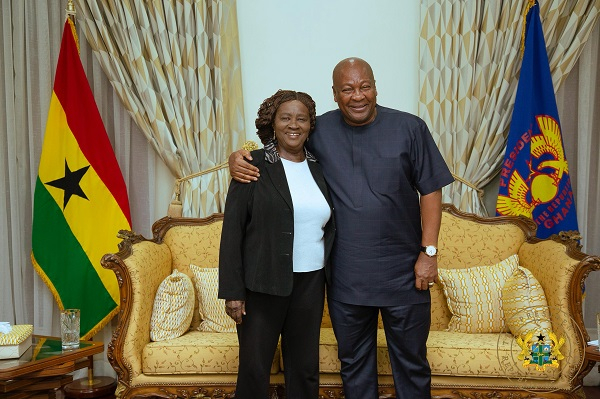Who owns Africa's data? Why digital sovereignty must be a boardroom priority - Businessday NG
As Africa Day draws near, it’s the perfect moment for boards and business leaders to pause and reflect on the continent’s digital trajectory. The African Union’s 2025 theme, “Justice for Africans and People of African Descent Through Reparations,” is more than a commemoration; it’s a challenge to confront the legacies of historical injustice and their modern-day echoes. In today’s digital world, these echoes are loud and clear.
While the internet promises transformation, its rapid expansion across Africa too often mirrors old patterns of external this time through foreign platforms, outsourced infrastructure, and data practices dictated from abroad. Under the banner of “connecting the unconnected,” Africa risks becoming a digital colony. The question facing every board is urgent: Are we building a digital future we own, or one that owns us?
Digital sovereignty is about far more than data localisation or regulatory box-ticking; it is about economic independence and self-determination. It is about ensuring that African businesses, governments, and citizens have the power to control their digital assets, shape their own ecosystems, and set the terms for technology that impacts their lives. With over 60% of Africa’s population under 25 and digital adoption surging, the stakes could not be higher. Yet, too often, our data is stored on foreign servers, our infrastructure is built by outsiders, and our innovation pipelines are shaped by external interests. This is not just a missed opportunity, it is a strategic vulnerability that threatens Africa’s long-term prosperity and security.
Boards have a unique and powerful role to play in changing this trajectory. The decisions made in boardrooms today will determine whether Africa remains a digital consumer or becomes a digital creator. The first step is recognising that digital sovereignty is not just an IT issue, it is a boardroom issue. It impacts competitiveness, the ability to attract investment, and organisational relevance in a rapidly evolving marketplace. As stewards of long-term value, boards must set the tone from the top, demanding that digital sovereignty is woven into corporate strategy, risk management, and innovation agendas.
What does this look like in action? It starts with prioritising local talent and solutions. Instead of defaulting to imported technologies, boards should challenge their organisations to seek out and invest in homegrown innovations. Africa is bursting with world-class developers, engineers, and entrepreneurs. Take Flutterwave, the Nigerian fintech that has processed over 200 million transactions worth $16 billion for 300,000 businesses in 34 countries-proof that African-led digital innovation. It’s a model for what’s possible when boards put local innovation at the centre of their agenda. This is essential for building resilient organisations that can weather global shocks.
Next, boards must take data governance seriously. Data is the new oil, but only if Africans own the wells. This means insisting on robust data protection policies, advocating for data localisation where it makes sense, and ensuring that partnerships with global technology providers are structured to protect African interests. Boards should ask tough questions about where data is stored, who has access to it, and how it is being used. They should demand transparency and accountability, not just from management, but from every partner in their digital value chain.
Championing digital sovereignty also means engaging with policymakers and regulators to shape the rules of the game. Boards can use their influence to advocate for smart, forward-looking digital policies that balance innovation with security, openness with control. This is especially important as Africa negotiates its place in the global digital economy. By speaking with one voice, African boards can help ensure that international agreements and standards reflect the continent’s priorities and protect its interests.
But digital sovereignty is only half the story. To truly unlock Africa’s potential, boards must also become champions of local innovation. This requires a shift in mindset from risk aversion to calculated risk-taking, from incremental improvement to bold experimentation. Boards should create space for innovation by supporting R&D, investing in digital skills, and fostering partnerships with startups, universities, and research institutions. They should celebrate failure as a stepping stone to success and reward teams that challenge the status quo.
The payoff is enormous. Organisations that embrace digital sovereignty and local innovation will not only be more resilient but also more relevant. They will be better positioned to capture new markets, respond to local needs, and build trust with customers and communities. They will help create a virtuous cycle of investment, talent development, and economic growth that benefits all Africans.
This is not a call for isolationism or protectionism. Africa must remain open to global ideas, investment, and collaboration. But openness must be on our terms, with our interests at the centre. Digital sovereignty is about having the power to choose, to negotiate, and to shape our own digital destiny.
As a board member, executive, or leader, your responsibility goes beyond quarterly results. You are a custodian of Africa’s future. The choices you make today will echo for generations. Will you be remembered as a bystander or as a builder of Africa’s digital independence?
The time for debate is over. The time for action is now. Put digital sovereignty and local innovation at the heart of your board agenda. Invest in African talent. Demand control over your data. Shape the policies that will define our digital future. It would be irresponsible to ignore this call. Africa is watching, and so is the world.









